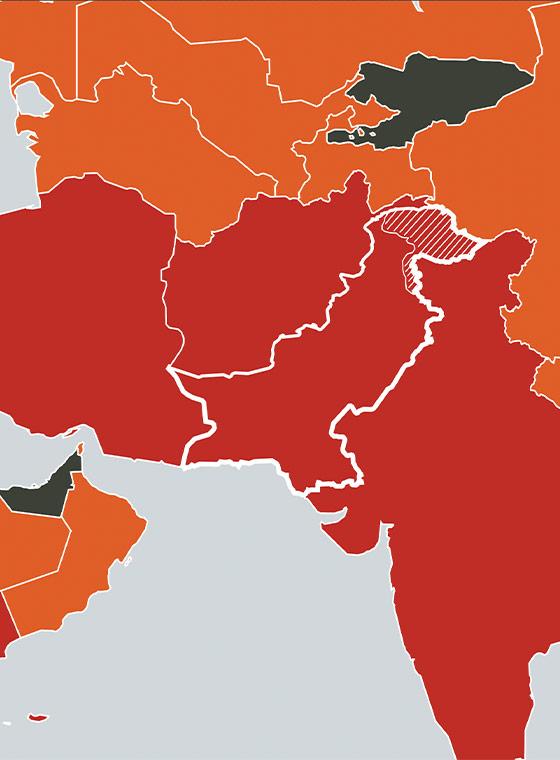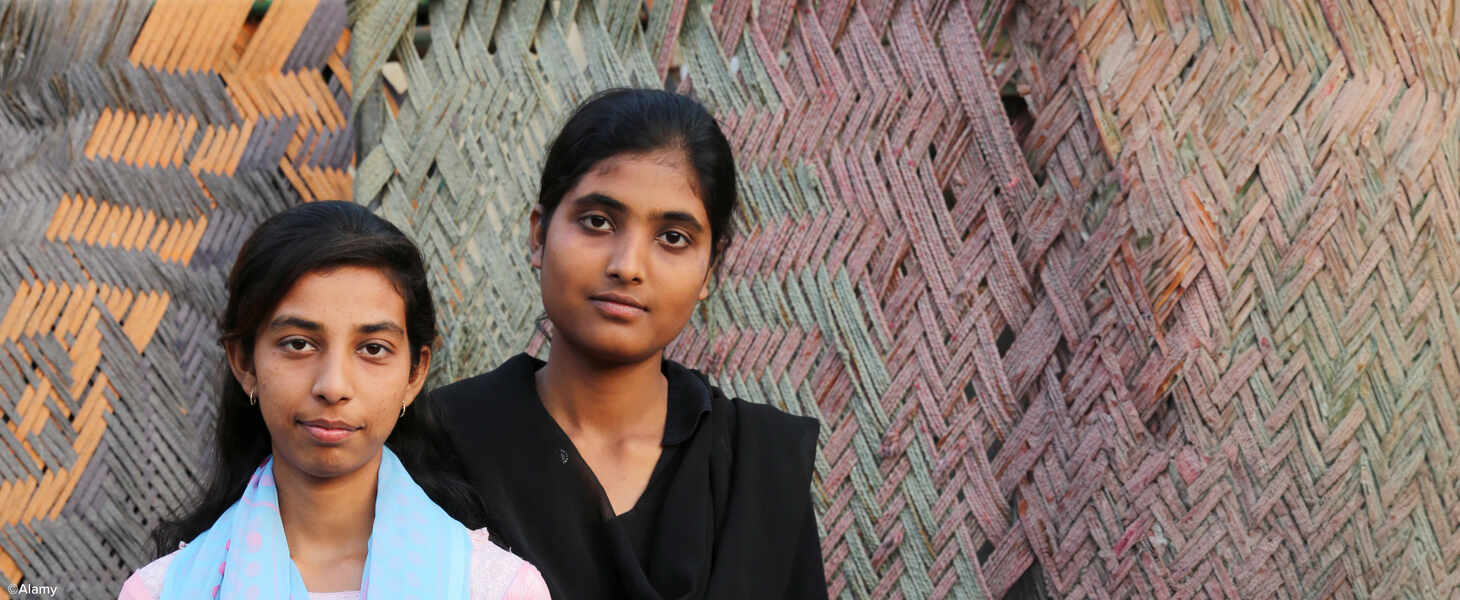What does persecution look like in Pakistan?
The devastating attack on the Christian community in Jaranwala in August 2023 was a sobering reminder of the hostile environment facing many believers in Pakistan. The attack on more than 20 churches and almost 100 homes was in response to allegations that two believers had desecrated the Quran.
Pakistan’s notorious blasphemy laws are often used to target minority groups, but Christians are disproportionately affected. Indeed, roughly a quarter of all blasphemy accusations target Christians, who only make up 1.8% of the population.
Believers are targeted in other ways, too, both overtly and subtly. The number of Christian girls (and those from other minority religions) abducted, abused and forcefully converted to Islam (frequently backed by lower courts) is growing, while churches that engage in outreach are particularly prone to opposition. All Christians suffer from institutionalized discrimination, and occupations that are deemed low, dirty and degrading, such as working as a sewer cleaner or on a brick kiln, are reserved for Christians by the authorities. Many are referred to as 'chura', a derogatory term meaning "filthy."
Historical churches have relative freedom for worship and other activities. However, they are heavily monitored and have been targeted for bomb attacks.
Who is most vulnerable to persecution?
Since by far the most Christians live in Punjab Province, many incidents of persecution, discrimination and intolerance occur there. However, next to Punjab, the province of Sindh is also notorious for being a centre for bonded labour, which affects many Christians.
Christians from a Muslim background suffer the brunt of persecution, both from radical Islamic groups who see them as apostates, and from families, friends and neighbours who see conversion as a shameful act of betrayal to family and community.
Meet "Rehena"
"At work, it is dangerous to discuss my faith in Jesus in any way. We have to hide our identity. We cannot even say the name of Christ."
What has changed this year?
The attack on Christians in Jaranwala in August 2023, in which churches and homes were devastated, and Bibles set alight, has reinforced the dangers facing Christians in Pakistan. Meanwhile, blasphemy laws remain a burden to many believers, not only those facing false accusations, but those who live in fear of being the next victim. Pakistan`s Senate passed a bill to tighten the country’s notorious blasphemy law by (among other things) increasing the punishment from three to ten years’ imprisonment.
What does Open Doors do to help Christians in Pakistan?
Open Doors is active in the Persian Gulf countries, including Pakistan, through The HOPE (Helping Others Pray and Encourage) Community.
How can you pray for Pakistan?
- Please pray that Christians will be protected from spurious allegations of blasphemy.
- Pray that believers will hold onto their identity as children of God as they live in a society that often demeans them.
- Ask for the protection and welfare of Christian women and girls, and for the release of all those taken from their families.
Heavenly Father, comfort, heal and restore our brothers and sisters reeling from traumatic experiences, like those affected by the attacks in Jaranwala. Continue to remind Your children of Your unfailing love for them, as they live in a society that often treats them as second-class citizens. Provide safer, more fulfilling workplaces for Christians to work in, and break the bondage of labor felt by many. Bring an end to the false accusations leveled against Christians, and strip away the fear this brings to many believers. Raise up leaders into positions of authority who will work towards ensuring better treatment for our family in Pakistan. Amen.







